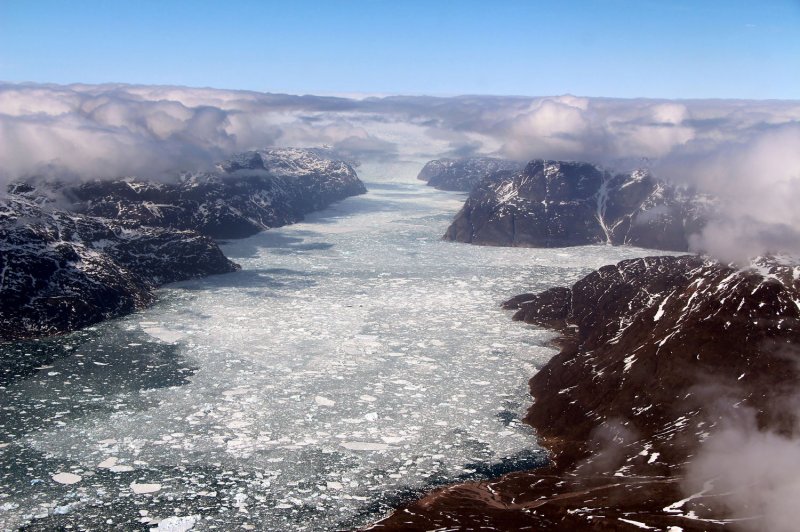Oct. 13 (UPI) -- New data suggests the water around Greenland is becoming less salty as the island's ice sheet melts.
Researchers with Denmark's Aarhus University detailed the impact of melting ice on Greenland's coastal waters in a new paper published this week in the journal Scientific Reports.















